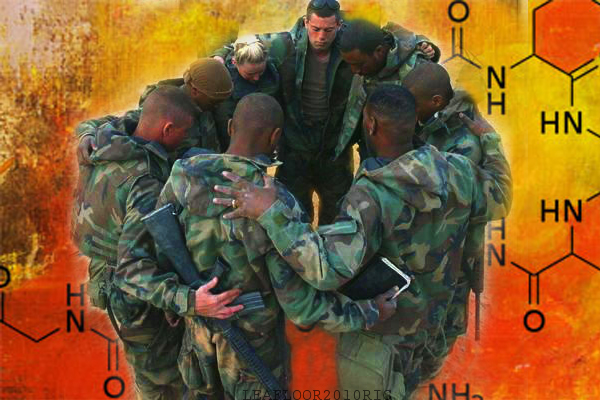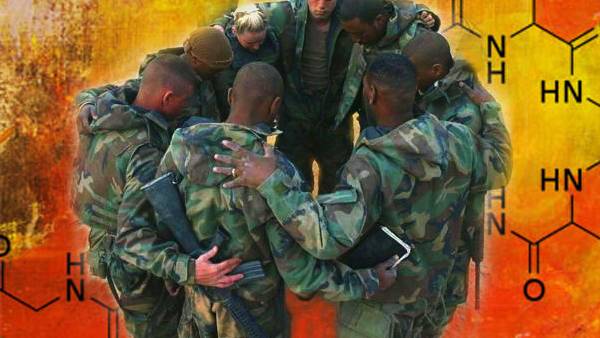Love hormone Oxytocin helps soldiers like each other and hate the enemy
Source: telegraph.co.uk
Soldiers form loyal "Bands of Brothers" fighting and dying for each other because they have the same instincts that cause mothers to ferociously protect their newborns, a study suggests.
Researchers have found that in the heat of battle they have the same chemicals running through their bloodstreams as protective mothers, meaning they develop incredibly strong bonds with each other but become extremely aggressive to outsiders.
The effect resolves around the hormone oxytocin which is released at times of stress and when people socialise with each other.
But the scientists have found that this chemical, often referred to as the love or bonding hormone, also makes them – like mothers – incredibly aggressive to outsiders.
Using a computer simulation game they found that volunteers given a spray of the hormone bonded more quickly and deeply with their own group but became much more hostile to outsiders.
Dr Carsten De Dreu, of the University of Amsterdam, said that the phenomenon was known as "parochial altruism" or "tend and defend".
This meant that boosted levels of oxytocin produced "in-group love" and "out-group aggression", he said.
Dr De Dreu, who published the findings in Science, said: "Oxytocin is a double edged sword. It makes you kinder to your group but more aggressive to those outside."
Dr De Dreu thinks that the production of oxytocin, which increases at times of stress and in new mothers, has evolved since hunter gathering times when food was scarce and groups had to compete to survive.
He said: "Being aggressive to threatening out-groups makes you a hero, loyal and a patriot to your own group."
Holly Arrow, an expert in the psychology of war at the University of Oregon, said: "Oxytocin is perhaps an important pathway that bonds men together and makes them ready to defend the group."
In three experiments, all on male volunteers, they compared the choices of individuals who received a dose of oxytocin via nasal spray with those who received a placebo.
The volunteers were assigned to three-person groups and introduced to a game in which they made confidential decisions that had financial consequences for themselves, their fellow group members and the competing groups.
The results indicated that oxytocin drives a “tend and defend” response, promoting in-group trust and co-operation and defensive, but not offensive, aggression toward competing out-groups.
The hormone appears to have this effect regardless of how naturally co-operative people are.
Article from: Telegraph.co.uk






















